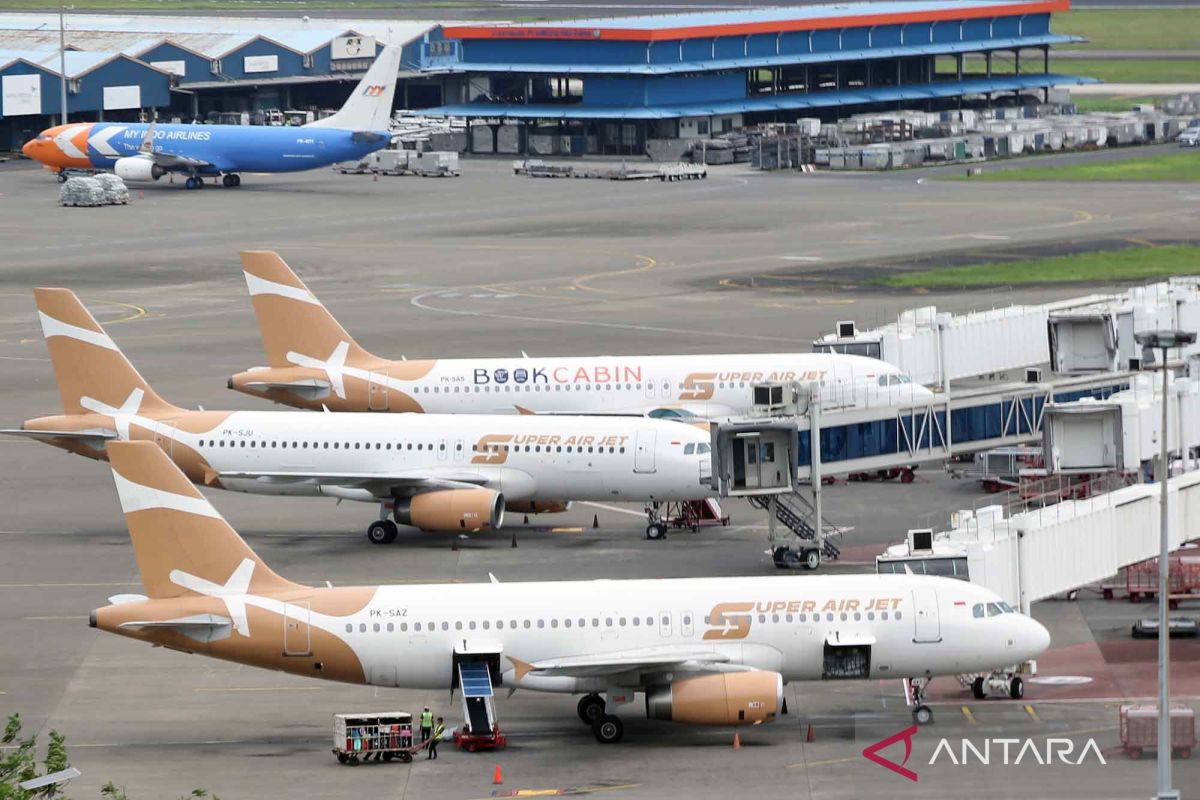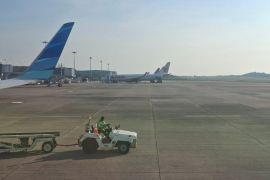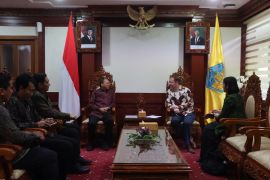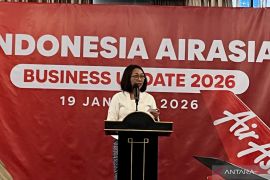Coordinating Minister for Infrastructure and Regional Development, Agus Harimurti Yudhoyono, announced the government's decision on airfare reduction after a limited meeting with President Prabowo Subianto.
After the meeting, which involved the relevant ministers to discuss domestic air ticket prices during the Christmas and New Year holiday period, the government decided to cut down flight fares by 10 percent.
The policy is part of the government's efforts to ease the people's burden as well as support and boost the tourism sector.
This was not a spontaneous decision, as the government has long heard public complaints about high airfares during the holiday season.
Amid the challenging economic conditions, when the nation is still recovering from the impact of the COVID-19 pandemic, pushing people's mobility by reducing airfares is considered an appropriate strategy.
In collaboration with state airport operator PT Angkasa Pura, state oil and gas company PT Pertamina, and state-owned air navigation services company AirNav Indonesia, the government has decided to lower fuel costs, aircraft passenger service rates, and airplane fuel prices at several major airports.
These steps were taken to achieve the target of reducing flight ticket prices by at least 10 percent.
The announcement about the airfare deduction received a positive response from the public.
Minister of Tourism, Widiyanti Putri Wardhana, said she was very happy with the decision, considering that the tourism sector will benefit the most from it.
She added that she wants the policy adjusting air ticket prices to be applied to all destinations in Indonesia, including those with popular tourist attractions.
The policy relaxation is needed to support domestic tourism industry players so that they can offer attractive travel packages at more affordable rates.
The year-end holiday period has always been one of the peak traveling seasons, but travelers often have to deal with expensive air tickets. Now, with more affordable flight tickets, more and more families can plan their vacations with ease to destinations across the country.
At the same time, airline companies are expected to take advantage of the policy relaxation to improve performance and reach a wider market.
Airlines that faced difficulties in meeting the passenger load target are now seeing greater opportunities.
Airlines also have the potential to add flight schedules to popular tourist destinations, such as Bali, Yogyakarta, and Lombok, to accommodate the surge in demand.
Incentives for cheaper airfares have also been successfully offered in many other countries to encourage air travel.
For example, the Malaysia Aviation Group (MAG), which operates Malaysia Airlines, Firefly, and MASwings, launched the "Jom Cuti-Cuti Malaysia" travel campaign in July 2022.
The campaign offered special travel vouchers to support the government's Tourism Recovery Framework (TRF) 2.0 as the country transitioned from the COVID-19 pandemic into the endemic phase.
The initiative helped contribute to a significant increase in the number of domestic and international tourists in Malaysia during the holiday period.
In April 2024, the Malaysian Aviation Commission (MAVCOM) reported strong growth in air passenger traffic, with a total of 7.9 million passengers, or a 19.5-percent increase year-on-year.
This growth was mainly driven by domestic air travel during the Eid al-Fitr holiday period.
Another example is the United States. In 1978, the US enacted the Airline Deregulation Act that deregulated the airline industry, removing federal control over such aspects as fares, routes, and market entry of new airlines.
The move encouraged healthier competition between airlines, which, in turn, led to lower airfares, improved accessibility, and significantly increased the number of domestic passengers.
The deregulation act also stoked service innovation and operational efficiency in the aviation industry.
Surge solutions
The policy to cut airfares in Indonesia has been welcomed by many parties, but the move also has some disadvantages. For example, during the holiday season, a significant surge in passenger numbers can be a double-edged sword.
The risks of flight delays, cancellations, and lower-quality services often arise during the peak period. Therefore, the government and airlines must commit to increasing operational capacity.
In addition to domestic flight routes, international routes are also expected to be popular during the year-end holidays. Low-cost airlines will certainly offer attractive discounts on popular destinations, such as Singapore, Kuala Lumpur, and Bangkok.
To anticipate this, the government must continue to promote domestic tourist destinations to the public.
The government's #DiIndonesiaAja (Just Travel in Indonesia) tourism campaign must be carried out more intensively with a focus on the beauty of Lake Toba (North Sumatra), Raja Ampat (Southwest Papua), and Labuan Bajo (East Nusa Tenggara).
The Ministry of Tourism must continue educating tourism actors to create family-friendly and inclusive experiences for tourists.
For many, the drop in ticket prices is more than just numbers and getting discounts on travel service applications. It also shows how the aviation and tourism sectors can adapt to market needs.
For the government, this is proof that well-designed policies can have a real impact on the wider community.
Meanwhile, for the people, this is a small step toward an increasingly inclusive and affordable vacation experience.
Related news: Task force still studying airfare reduction plan: ministry
Related news: Airfares to likely see drop before Christmas: Indonesian Govt
Translator: Hanni S, Kenzu
Editor: Anton Santoso
Copyright © ANTARA 2024












